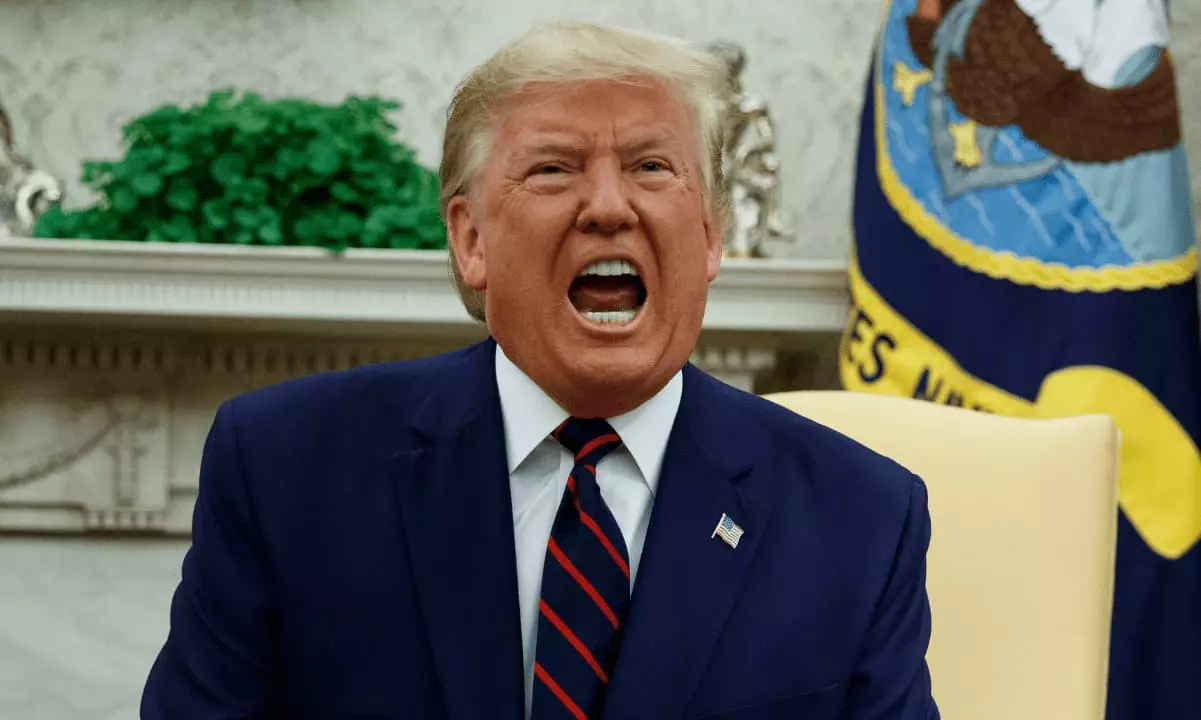In a political arena where the stakes are perpetually high, the dynamics of influence and power can shift drastically in a matter of hours. A prime example can be seen in the recent incident involving Brian Ballard, a prominent Washington lobbyist with a track record of success. This case underscores the intricate web of connections that buoy the political machine, yet it also highlights how easily it can unravel. Ballard’s misjudged promotion of a cryptocurrency reserve through President Donald Trump’s social media platform, Truth Social, illustrates how the best-laid plans can go awry when personal interests interlace dangerously with political ambitions.
The viral post, which was intended to project a bold stance on cryptocurrency, inadvertently dragged Ballard into a tempest of political fallout. By unwittingly involving XRP—a token aligned with Ripple Labs, a client of Ballard’s firm—the lobbyist not only drew ire from the President but also illuminated the sometimes murky waters of lobbying where personal gain can overshadow public service. Trump’s furious reaction to the revelation that his words had been brokered behind the curtains of influence points towards a crucial lesson in political optics: even the most strategic moves can lead to public disgrace when they are perceived as self-serving.
Falling Out of Favor: The Price of Perceived Opportunism
The stark reality of politics in Washington reveals that reputations are as volatile as the stock market. When Trump learned of Ballard’s connection to Ripple, it wasn’t simply a matter of losing a client; it marked a significant shift in the power dynamics at play in the West Wing. Trump’s vehement response—casting Ballard out of his circle—highlights a fundamental aspect of leadership: loyalty and affability are often more valued than business acumen.
Political insiders have noted that the lobbyist’s fame and influence stem considerably from his past ties to the President. The message from Trump’s inner circle is abundantly clear: leverage your relationship without threatening the integrity of that connection, or risk exile. The perception that Ballard was trading on his past associations rather than building genuine ties has left him walking a precarious line. As one Trump ally aptly put it, “One way to get yourself in the doghouse is for the President to think you are trading on his name.” This echoes a timeless adage in Washington: the price of perceived opportunism can be steep.
Financial Gains Amid Political Turmoil
Despite the backlash from the Truth Social incident, Ballard’s lobbying firm has reportedly prospered, gaining 130 new clients in a span that most would find remarkable. However, this financial windfall raises questions about the sustainability of success built on a shaky foundation. Will clients continue to trust a lobbyist embroiled in controversy, or will they seek greener pastures in the ever-evolving landscape of Washington influence? The initial $14 million revenue in early 2025 speaks volumes about the appetite for lobbying; however, it simultaneously reflects the underlying tension between political clout and ethical lapses.
Interestingly, the firm’s financial success seems to stand in stark contrast to the whispers of dissent among Trump’s allies. Their concerns about Ballard’s approach cast a long shadow over his newfound fortune. While earning potential can be alluring in the short term, cultivating an image built on integrity is vital for long-term success in lobbying and in politics. The question remains whether Ballard can navigate through these treacherous waters, re-establishing trust and confidence among both clients and the Presidential circle.
The Fine Line Between Influence and Integrity
In a world where influence is currency, the case of Brian Ballard serves as an urgent reminder of the ethical considerations that accompany lobbying. The essence of effective influence lies in fostering genuine relationships that prioritize the interests of the public rather than self-interest. As lobbying continues to evolve in this digital age, the ramifications of strategic missteps will reverberate across the political landscape for years to come.
Ultimately, this episode encourages a broader dialogue on the ethical boundaries of political lobbying. The pitfalls exhibited in Ballard’s case illustrate that power and privilege must be handled with care, lest they implode under scrutiny. The challenge for modern lobbyists is to find a sustainable way to marry ambition with ethical conduct, lest they alienate the very powers they seek to influence.















Leave a Reply